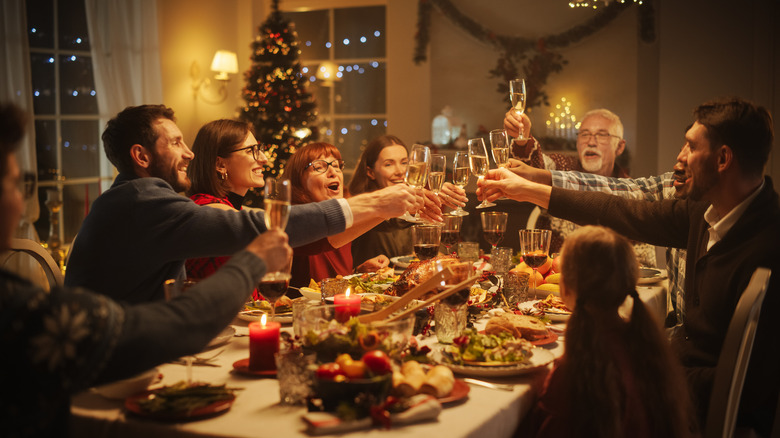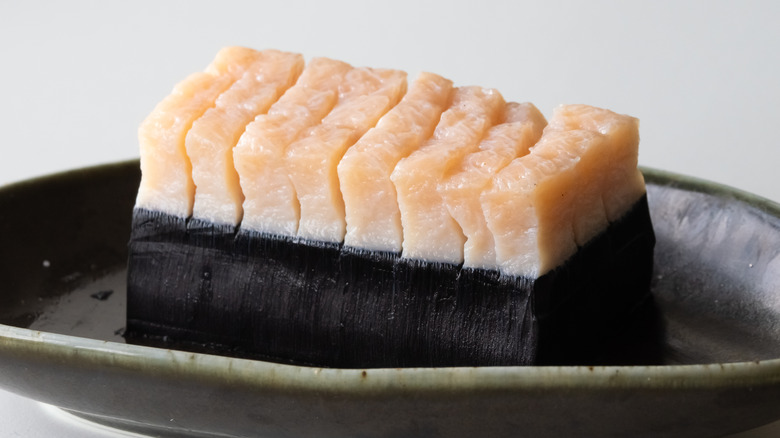In Greenland, A Traditional Christmas Feast Features Some Unusual Meat
Around the world, Christmas is celebrated with longstanding traditions. Dinners are particularly festive events, often featuring a smörgåsbord of meats, vegetables, fruits, and even some unique holiday desserts. You might be surprised to learn, though, that Greenlandic Christmas feasts typically include reindeer meat.
Called "tuttu" in Greenlandic, reindeer is one of the animals people hunt, so it's a ubiquitous part of their diet. It's even available in supermarkets and on restaurant menus, where reindeer burgers are a common Nordic dish. The lean yet tender meat mainly serves as a substitute for lamb, which is hard to come by in some parts of the country. Considered a delicacy, it's comparable to Danish venison and may be prepared for carpaccio (thinly sliced raw meat) or dried, fried, salted, smoked, or added to soups. For Christmas specifically, many Greenlandic households make barbecued reindeer and like to serve it with potatoes, a brown sauce, red cabbage, and redcurrant jelly.
However, reindeer isn't the only unusual meat you'll find on Christmas dinner tables in Greenland. Whale, seal, and seabird proteins often make their way onto the menu, too.
About Greenland's traditional mattak, kiviak, and suaasat dishes
Eating whale and seal meat are controversial issues around the world. However, these proteins have deep cultural roots among Greenland's Inuit community, who rely on the foods to survive winters, so they frequently make their way into Christmas feasts.
Mattak is a layer of fat and skin of a whale, and it's shared as a sign of hospitality and friendship. This snack usually comes from a narwhal, a small whale with a grayish-striped color. It's typically served raw in small cubes with soy sauce or coarse salt. The initial bite is said to be satisfying because of the outer texture, while the skin tastes salty and the fat feels greasy. Since it's too tough to chew, though, many people spit it out or swallow it whole.
A tradition for centuries, kiviak is an Inuit dish that consists of stuffing 300 to 500 small auk seabirds whole (minus their intestines) inside of a suture-closed seal carcass, usually a harbor or ringed seal. The carcass is buried underneath stones and left to ferment for six to eight months, similar to how kimchi or sauerkraut are made. It takes on a deep umami flavor that is often compared to strong blue cheese, and its aroma can be overpowering for some people. Kiviak is commonly compared to hákarl (fermented shark), a traditional Icelandic dish Gordon Ramsay couldn't handle.
Of course, Greenland's national dish — suaasat — is traditionally served during Christmas as well. This Inuit soup features a broth made from seal meat and is generally thickened with barley, potatoes, or rice. Onions are often added alongside bay leaves, salt, and black pepper for seasoning.

